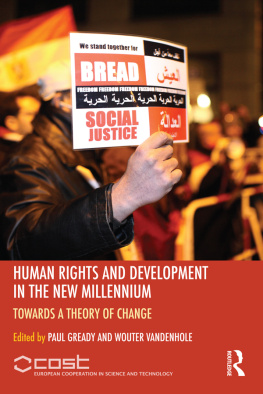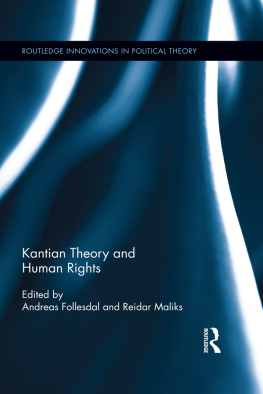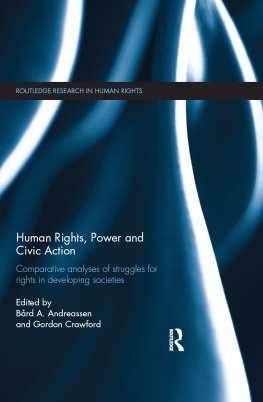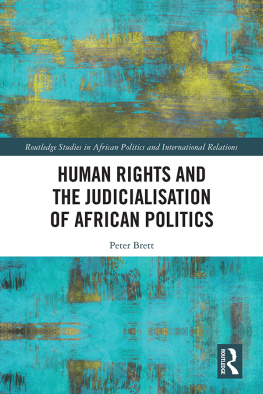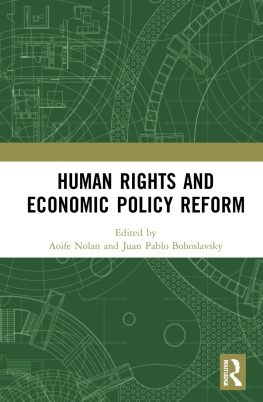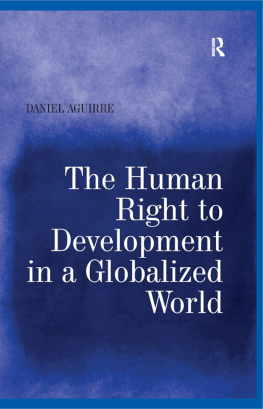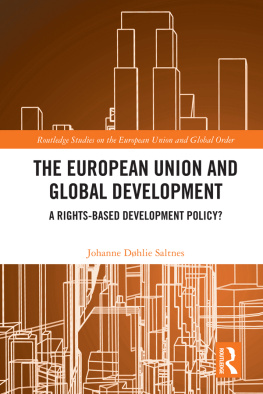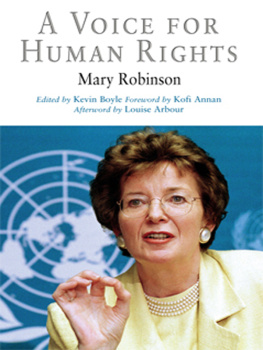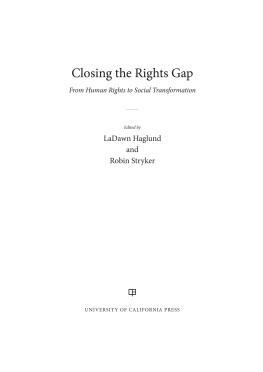Human Rights and Development in the New Millennium
In recent years human rights has assumed a central position in the discourse surrounding international development, while human rights agencies have begun to more systematically address economic and social rights. This edited volume brings together distinguished scholars to explore the merging of human rights and development agendas at local, national and international levels. They examine how this merging affects organisational change, operational change, and the role of relevant actors in bringing about change. With a focus on practice and policy rather than pure theory, the volume also addresses broader questions such as what human rights and development can learn from one another, and whether the connections between the two fields are increasing or declining.
The book is structured in three parts:
- Part I looks at approaches that combine human rights and development, including chapters on drivers of change; indicators; donors; and legal empowerment of the poor.
- Part II focuses on organisational contexts and includes chapters on the UN at the country level; EU development cooperation; PLANs childrens rights-based approach; and ActionAids human rights-based approach.
- Part III examines country contexts, including chapters on the ILO in various settings; the Congo; Ethiopia; and South Africa.
Human Rights and Development in the New Millennium will be of strong interest to students and scholars of human rights, development studies, political science and economics.
Paul Gready is Professor of Applied Human Rights and Director of the Centre for Applied Human Rights at the University of York, UK.
Wouter Vandenhole is Professor of Human Rights Law and Chairs the Law and Development Research Group at the University of Antwerp, Belgium.
COST the acronym for European Cooperation in Science and Technology is the oldest and widest European intergovernmental network for cooperation in research. Established by the Ministerial Conference in November 1971, COST is presently used by the scientific communities of 36 European countries to cooperate in common research projects supported by national funds.
The funds provided by COST less than 1% of the total value of the projects support the COST cooperation networks (COST Actions) through which, with EUR 30 million per year, more than 30 000 European scientists are involved in research having a total value which exceeds EUR 2 billion per year. This is the financial worth of the European added value which COST achieves.
A bottom up approach (the initiative of launching a COST Action comes from the European scientists themselves), la carte participation (only countries interested in the Action participate), equality of access (participation is open also to the scientific communities of countries not belonging to the European Union) and flexible structure (easy implementation and light management of the research initiatives) are the main characteristics of COST.
As precursor of advanced multidisciplinary research COST has a very important role for the realisation of the European Research Area (ERA) anticipating and complementing the activities of the Framework Programmes, constituting a bridge towards the scientific communities of emerging countries, increasing the mobility of researchers across Europe and fostering the establishment of Networks of Excellence in many key scientific domains such as: Biomedicine and Molecular Biosciences; Food and Agriculture; Forests, their Products and Services; Materials, Physical and Nanosciences; Chemistry and Molecular Sciences and Technologies; Earth System Science and Environmental Management; Information and Communication Technologies; Transport and Urban Development; Individuals, Societies, Cultures and Health. It covers basic and more applied research and also addresses issues of pre-normative nature or of societal importance.
Web: http://www.cost.eu
First published 2014
by Routledge
2 Park Square, Milton Park, Abingdon, Oxon OX14 4RN
Published in the USA and Canada
by Routledge
270 Madison Avenue, New York, NY 10016
Routledge is an imprint of the Taylor & Francis Group, an informa business
2014 Paul Gready and Wouter Vandenhole for selection and editorial matter; individual contributors their contribution
The right of the editors to be identified as the authors of the editorial material, and of the authors for their individual chapters, has been asserted in accordance with sections 77 and 78 of the Copyright, Designs and Patents Act 1988.
This publication is supported by COST
All rights reserved. No part of this book may be reprinted or reproduced or utilised in any form or by any electronic, mechanical, or other means, now known or hereafter invented, including photocopying and recording, or in any information storage or retrieval system, without permission in writing from the publishers.
Neither the COST Office nor any person acting on its behalf is responsible for the use which might be made of the information contained in this publication. The COST Office is not responsible for the external websites referred to in this publication.
British Library Cataloguing in Publication Data
A catalogue record for this book is available from the British Library
Library of Congress Cataloging-in-Publication Data
Human rights and development in the new millennium:
towards a theory of change / edited by Paul Gready and
Wouter Vandenhole. 1 Edition.
pages cm
Includes bibliographical references and index.
1. Human rights. 2. Economic developmentSocial aspects.
I. Gready, Paul.
JC571.H768757 2013
323.01dc23 2013006005
ISBN: 978-0-415-52729-3 (hbk)
ISBN: 978-0-415-52730-9 (pbk)
ISBN: 978-0-203-79640-5 (ebk)
Typeset in Bembo
by Cenveo Publisher Services
Contents
P. Gready with W. Vandenhole
H.-O. Sano
G. de Bco
A. Tostensen, H. Stokke and S. Trygged
B. A. Andreassen
W. Vandenhole
M. van Reisen and D. Mekonnen
K. Arts
P. Gready
H. Stokke
K. De Feyter and R. Lumbika Nlandu
S. Porter
S. Alemahu Yeshanew
W. Vandenhole, C. Lennox, P. Gready and H. Stokke
Brd A. Andreassen is Professor and Director of Research at the Norwegian Centre for Human Rights, Law Faculty, University of Oslo. He has published and taught in human rights and development over the past 25 years, and received his doctoral degree in political science from the University of Oslo and a Diploma of International and Comparative Law of Human Rights from the International Institute of Human Rights, Strasbourg. Andreassen has been co-editor of the international research and documentation project Human Rights in Development (Kluwer, a collaborative effort between European human rights centres until the early 2000s) and has published on the right to development, human rights in development processes, social and economic rights, as well as on governance, democratic change and ethno-politics in African contexts. He is editor (with Stephen P. Marks) of Development As a Human Right. Legal , Political and Economic Dimensions . Antwerp, Intersentia, 2010, 2nd edn. He is Editor in Chief of the Nordic Journal of Human Rights .
Karin Arts is Professor of International Law and Development at the Institute of Social Studies in The Hague (ISS), which is part of Erasmus University Rotterdam (EUR). She teaches and carries out research projects and advisory work, mainly on human rights-based approaches to development, childrens rights and the role of human rights in the development cooperation policies of the European Union. Karin is a member of the Public International Law Advisory Commission (CAVV) and of the Human Rights Committee of the Advisory Council on International Affairs (AIV), both of which advise the government and the parliament of the Netherlands. She is author or editor of seven books and over 50 book chapters and articles in periodicals, including Common Market Law Review, German Yearbook of International Law , Asian Yearbook of International Law, European Yearbook on Human Rights , Third World Quarterly , African Journal of International and Comparative Law , Leiden Journal of International Law and Internationale Spectator .

